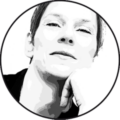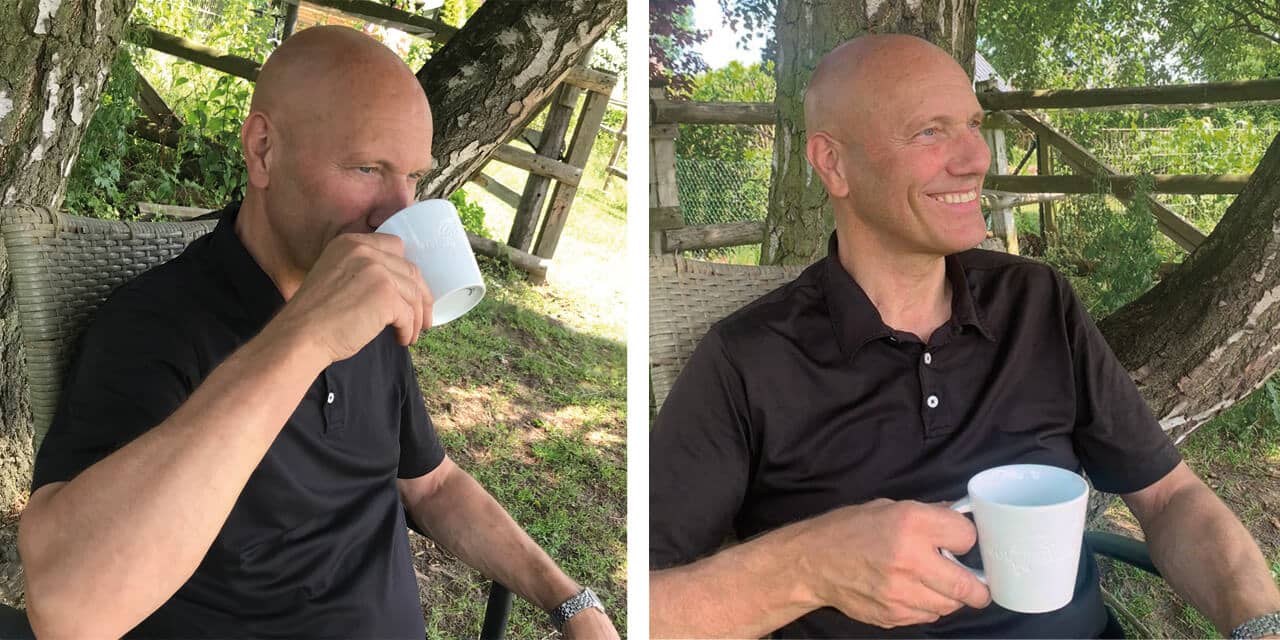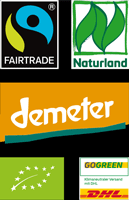- Coffee with
“The crazy organic-people”
For 25 years, he has been head, heart – and gut – of Mount Hagen:
Karsten Suhr, authorized officer and thoroughly a coffee-man, talks about the very start of the business, about consequences, stereotyped thinking, and stubbornness. And how a coincidence can bring you closer to achieving your dreams.

Barbara Beiertz
B: Karsten, thank you so much for taking the time to give us a glimpse behind the scenes. What kind of coffee can I offer you?
K: I love the Peru-Demeter. Or the blend, our – how do you call it? – „all-time-favorite“. It tastes so well-rounded…
B: Ok, so first of all a Peru-coffee for you. And now, let’s start. Would you tell us a little bit about yourself?
K: I actually come from a farm – a very conventional one. There, I was trained in wholesale and international land trade and that is where everything started for me: I was fascinated by the development of agriculture over the past decades. The desertification of farmland, almost no hummus left – I asked myself, if there was anything that could be done differently. There must be something.
Back then, we lived near the Bauckhof in Amelinghausen. I used to go there to get fresh milk with a milk churn for the kids. That is how I met Joachim Bauck. Through him, I eventually got into the organic wholesale branch with a focus on Demeter, where I stayed for 10 years. At that time, Mount Hagen was still small, but part of the product portfolio. Bevor I started working for Wertform in 1996, I worked in a company for technical components, for a short amount of time. The organically oriented companies were mostly located in the south of Germany, but I did not want to leave the north.
B: So, you are a real northern light?
K: (smiles) Yes, that’s what I am being told. But it was the right decision: When I started working for Wertform, we were only 4 people. Today, one would call that a classical start-up. The owners left us the freedom to work as independent, as if it was our own company.
“In the beginning, people called us the crazy organic-people and laughed at us”
B: What was your idea?
K: Organic coffee, Fairtrade-coffee was a peculiar thing back then. And so were we. We were called the crazy organic-people and were laughed at. We didn’t just intend to expand sustainable cultivation, but also to provide a fair pay to our business partners and coffee farmers. And we wanted to produce delicious coffee. The Nicaragua-El-Salvador alternatives at that time tasted terrible.
I always asked myself one big question: How do I build a business, a team, a brand with the aim of being successful ecologically and economically at the same time? Thankfully, we were given plenty of rope, but in the end, the success proved us right.
We thought “big“ from the very beginning. We went to international expos for organic products in the USA, in Dubai and so on. That’s why we became widely known over time, even though we were only as big as a thimble.
Sometimes you need to be stubborn.
B: Didn’t you face any resistance?
K: Not much. Well, let’s put it this way: There were strong relationships between some trade partners that we could not get in between. Some believed that organic products need to stay in the organic food trade section. We had a different view on that and received plenty of suspicious looks. “Brand thinking” was also something that had not fully arrived in the organic segment. That took quite some time. And of course, some business partners tried to dictate prices. (smiles) In these situations we remained stubborn and declined politely. But we never gave up and eventually came to an agreement.
B: Who won?
K: (laughs) I am not unsatisfied.
photos: Lichtenford-Design

photos: Lichtenford-Design
B: I see…Where did you get the perseverance?
K: It is basically enthusiasm. There is so much we can develop. We support the farmers to switch to organic cultivation. We grow. Together. We do something meaningful.
I am absolutely convinced of Demeter-cultivation. And I share this dream with Dago and Cesar von La Chacra D’Dago and together we can achieve it.
B: That is the Demeter-farm in Peru. How did you meet?
“They have a dream. And so do I.”
K: Coincidence. We were travelling through Peru to visit organic farmers and cooperatives. His small farm was on the way, so we decided to make a small detour. Some things are just meant to happen. Dago was in the middle of transitioning to organic farming and told us about his ideas to go one step further to biodynamic farming. We got on well from the beginning.
Today we receive three containers of Demeter-coffee from him. That really is not much. But we support him to convince other farmers of Demeter-cultivation. We help him with interest-free loans, for example for his fermentation tanks. So, over the years we developed a unique partnership. Maybe you can even call it friendship – with him and his son Cesar. They have a dream. And so do I.
B: What kind of dream?
K: I want to produce much more Demeter-coffee – 100 containers instead of 7 or 8 within the next year. And there is more to it. Because that would lead to the cultivation of vegetables and fruit. A large variety would develop. We could build a school. Achieving this as a team is just amazing. And very rare. We are going a long way together, without any adhesion contracts or dependency. But „simply“ because we want to achieve it together.
Organic is not nice to have. It is a necessity.
B: Is that self-realization? Personal courage?
K: Self-realization? No. Courage? Maybe. In fact, I believe it is simply a necessity. The climate change demands a different kind of agriculture. The minimum standard should ne to follow to the EU regulations on organic farming. That would be better than what we have now.
B: Currently, we have a total of 10% of organic farmland in Germany…
K: And we need more, organic must become the standard. I know, that sounds like a fantasy. But I am sure that it is possible. You just have to do it.
B: What an amazing appeal. Thank you, Karsten, for your time and your frankness.



